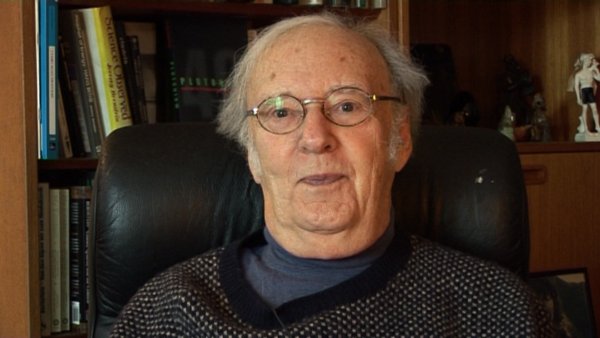NEXT STORY

Understanding the theory of relativity
RELATED STORIES

NEXT STORY

Understanding the theory of relativity
RELATED STORIES


|
Views | Duration | |
|---|---|---|---|
| 11. Playing the trumpet | 340 | 00:35 | |
| 12. Where should I go to college? | 467 | 02:17 | |
| 13. How to steer clear of trouble | 377 | 01:15 | |
| 14. I had no interest in becoming a scientist | 378 | 02:02 | |
| 15. Understanding the theory of relativity | 654 | 02:52 | |
| 16. Philipp Frank lectures | 533 | 03:05 | |
| 17. Am I smart enough to take calculus? | 1 | 708 | 02:52 |
| 18. The difference between Schwinger's and Weiskopf's lectures | 947 | 01:33 | |
| 19. You have to decide: physics or maths | 1 | 654 | 03:47 |
| 20. Choosing physics | 503 | 01:48 |


So I applied to Harvard. My father wrote this wonderful letter to the Dean of Admissions, saying that… explaining my situation: I'd been on my own, I'd been doing this, that and the other thing. And the two of us got in, my best friend and I. We roomed together our freshman year. He went on to become a professor at the Harvard Law School. I see him occasionally. Successful lawyer, professor of the Harvard Law School. And I went to Harvard, and I had absolutely no clue as to what I was going to do, except I knew what I was not going to do. I was not going to become a scientist or anything. I had no interest at all and had no idea of doing anything like that whatsoever.
But Harvard had then created a general education programme for non-science majors because Conant, Jim Conant the chemist, who had a lot to do with the nuclear weapons during the war, had decided that these scientific things that were coming up, such as nuclear weapons and their disposal, were too serious to be left to the scientist, and the public needed general education. Harvard undergraduates who might go on to something or other, should have a scientific education of a minimum kind, so I signed up… well, I looked in the Harvard Confidential Guide to find out the easiest of the Natural Science courses, which was Natural Sciences III, taught by I Bernard Cohen. I Bernard was an historian of science and he had a very flowing voice, very stentorian, flowing voice, and a marvellous handwriting, fantastic handwriting.
Born in 1929, Jeremy Bernstein is an American physicist, educator and writer known for the clarity of his writing for the lay reader on the major issues of modern physics. After graduating from Harvard University, Bernstein worked at Harvard and at the Institute of Advanced Studies at Princeton. In 1962 he became an Associate Professor of Physics at New York University, and later a Professor of Physics at Stevens Institute of Technology in Hoboken, a position he continues to hold. He was also on the staff of The New Yorker magazine.
Title: I had no interest in becoming a scientist
Listeners: Christopher Sykes
Christopher Sykes is an independent documentary producer who has made a number of films about science and scientists for BBC TV, Channel Four, and PBS.
Tags: Harvard University, James Conant, I Bernard Cohen
Duration: 2 minutes, 2 seconds
Date story recorded: 15th June 2011
Date story went live: 17 August 2011